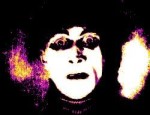Film Review

The film is based loosely on a novel of the same title by the acclaimed French writer Roger Vercel, whose previous novel Capitaine Conan (winner of the Prix Concourt in 1934) would later be adapted for cinema by Bertrand Tavernier. Charles Spaak's original screenplay for the film was rejected by Grémillon's bosses at UFA, who hired André Cayatte to draft a rewrite. This second version of the script was ill-received by both Grémillon and his lead actor Jean Gabin, who insisted that it be rewritten by Jacques Prévert, to put much more emphasis on the central love affair. Prévert's poetic realist style was perfectly aligned with Grémillon's conception of the film and together they succeeded in crafting one of French cinema's most hauntingly poetic visualisations of a will-o'-the-wisp love affair.
Grémillon's one stroke of good fortune on this film was his casting. Jean Gabin was the biggest box office draw in French cinema at the time and had given the director his first commercial success with Gueule d'amour (1937). Gabin personified the kind of working class hero that features prominently in Grémillon's films and is particularly well-suited to play the incorruptible yet emotionally vulnerable male lead in Remorques. Here Gabin is partnered with rising star Michèle Morgan, with whom he had already formed a memorable couple, first in Marcel Carné's Le Quai des brumes (1938), and then in Maurice Gleize's Le Récif de corail (1938). Morgan's almost ethereal presence, sensual yet also strangely distant, contrasts perfectly with Gabin's solidity and ordinariness - together they formed one of French cinema's most successful screen partnerships, although they would only appear together in one further films: La Minute de vérité (1952). For the other main female role, Grémillon selected Madeleine Renaud, an actress who represented for him Gabin's female counterpart, a woman securely anchored in the reality of her working class milieu. Grémillon would later give Renaud her greatest role in his pro-resistance, pro-feminist masterpiece Le Ciel est à vous (1944).
Grémillon's ambitions for the film were somewhat compromised by events behind his control. He had originally envisaged shooting most of the film on location in Brittany, including the dramatic storm sea scenes. When the latter proved to be impracticable to realise without drowning his camera operator, he had no option but to record them, along with the interior scenes, at UFA's Billancourt studios in Paris. Despite an impressively constructed set, Grémillon failed to achieve the extreme realism that he sought and, by today's standards, some of the shots are laughably unconvincing. The biggest setback however was the outbreak of WWII in September 1939, which brought an immediate end to the studio shoot. Filming resumed briefly in May the following year, but was again suspended when France capitulated to Nazi Germany in June 1940. Grémillon was able to complete the film during the summer of 1941, allowing it to be released in November 1941, by which time both of its stars (Gabin and Morgan) had taken up temporary residence in Hollywood. Despite its troubled production, Remorques proved to be a massively popular film and secured Grémillon's place as one of France's leading filmmakers during its darkest years.
© James Travers 2002
The above content is owned by frenchfilms.org and must not be copied.
Film Synopsis
André Laurent is the captain of a salvage boat and lives in the Brittany port of Brest with his wife Yvonne. Concealing a serious illness, Yvonne pleads with her husband to give up his hazardous job and start a new life with her in another town, but, loyal to his employees, André refuses. One night, he is called to rescue a merchant ship in distress. The captain of the distressed ship has no intention of paying André for the rescue and absconds once the ship has been towed to safety, leaving behind his wife Catherine. Suspecting that his marriage is crumbling, André finds himself attracted towards Catherine...© James Travers
The above content is owned by frenchfilms.org and must not be copied.
Similar Films
Here are some other films you may enjoy watching:Other related links:
Film Credits
- Director: Jean Grémillon
- Script: Jacques Prévert, Georges Combot, Roger Vercel (novel), André Cayatte, Charles Spaak
- Cinematographer: Armand Thirard
- Music: Roland Manuel
- Cast: Jean Gabin (Le capitaine André Laurent), Madeleine Renaud (Yvonne Laurent), Michèle Morgan (Catherine), Charles Blavette (Gabriel Tanguy), Jean Marchat (Marc), Nane Germon (Renée Tanguy), Jean Dasté (Le radio), René Bergeron (Georges), Henri Poupon (Le docteur Maulette), Anne Laurens (Marie Poubennec), Marcel Pérès (Le Meur), Marcel Duhamel (Pierre Poubennec), Henri Pons (Roger), Sinoël (L'armateur), Fernand Ledoux (Kerlo, le bosco), Léonce Corne (Un invité à la noce), Lucien Coëdel (Un marin du 'Cyclope'), Henri Crémieux (L'administrateur), Alain Cuny (Un matelot du 'Mirva'), Robert Dhéry (Un matelot au mariage)
- Country: France
- Language: French
- Support: Black and White
- Runtime: 81 min
- Aka: Misty Wharves ; Stormy Waters
The very best of German cinema

The greatest French film directors

The very best sci-fi movies
